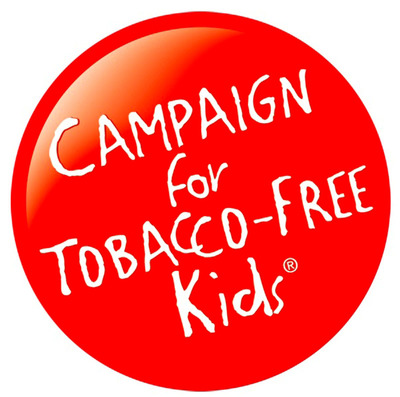Subjects: NPT, CHI, SVY, EXE, AVO, MAT
Tobacco-Free Kids: FDA Should Ban All Flavored Tobacco Products, Including Menthol Cigarettes - Evidence Is Clear that Flavored Products Lure Kids
WASHINGTON, March 20, 2018 /PRNewswire-USNewswire/ -- The U.S. Food and Drug Administration today requested public input on how it should address the use of flavors in tobacco products. The FDA presented powerful scientific evidence that flavors play a key role in youth initiation and continued use of tobacco products, including cigars and electronic cigarettes. Given the evidence cited by the FDA, the agency should act to protect kids from tobacco addiction by prohibiting the sale of all flavored tobacco products, including menthol cigarettes. The FDA must act promptly to stop the flood of flavored e-cigarettes and cigars that have entered the market in recent years and threaten to addict a new generation of kids.

As summarized in the FDA's regulatory notice today, youth consistently report flavors as a key reason for using tobacco products. The FDA's own research, first published in an October 2015 study in JAMA, found that 81 percent of kids who have ever used tobacco products started with a flavored product, including 81 percent who have ever tried e-cigarettes and 65 percent who have ever tried cigars. Youth also cite flavors as a major reason for their current use of tobacco products, with 81.5 percent of youth e-cigarette users and 73.8 percent of youth cigar users saying they used the products "because they come in flavors I like."
The FDA also has more than enough evidence to ban the sale of menthol cigarettes. As today's filing noted, youth and young adult smokers are much more likely to smoke menthol than non-menthol cigarettes, as compared to older adult smokers. A comprehensive FDA report on menthol cigarettes, issued in 2013, concluded that menthol cigarettes lead to 1) increased smoking initiation among youth and young adults; 2) greater addiction; and 3) decreased success in quitting smoking. "These findings, combined with the evidence indicating that menthol's cooling and anesthetic properties can reduce the harshness of cigarette smoke and the evidence indicating that menthol cigarettes are marketed as a smoother alternative to nonmenthol cigarettes, make it likely that menthol cigarettes pose a public health risk above that seen with nonmenthol cigarettes," the FDA's report concluded.
The FDA notice also examined whether there is evidence that flavors can play a role in "facilitating transition from cigarettes to tobacco products that may pose less risk." In contrast to the strong evidence that flavors contribute to youth tobacco use, the FDA cites only limited evidence that e-cigarettes as a whole are effective at promoting smoking cessation and a complete paucity of sound scientific evidence that flavors do so.
A 2009 federal law banned the sale of most flavored cigarettes. However, manufacturers in recent years have sought to entice kids with a new generation of flavored tobacco products. E-cigarettes are sold in over 7,700 flavors, and flavored cigars make up more than half the U.S. cigar market, studies show. These products are sold in flavors like gummy bear, cotton candy, cherry crush and banana smash that clearly appeal to kids. E-cigarettes have become the most commonly used tobacco product among kids, and more high school boys now smoke cigars than cigarettes (for more information, see our report, The Flavor Trap).
The FDA rightly recognizes that it must address the use of flavors in tobacco products as part of its comprehensive new strategy to accelerate progress in reducing the death and disease caused by tobacco use. The evidence should compel the FDA to ban the use of all flavors in tobacco products unless a manufacturer provides scientific evidence to the agency demonstrating that allowing a specific flavor in a product benefits public health. The FDA must also move forward with other critical actions, including reducing nicotine levels in cigarettes and other combustible tobacco products to minimally or non-addictive levels; requiring large, graphic health warnings on cigarette packs; and supporting the development of innovative new products to help more smokers quit.
SOURCE Campaign for Tobacco-Free Kids
These press releases may also interest you
|
News published on and distributed by:



